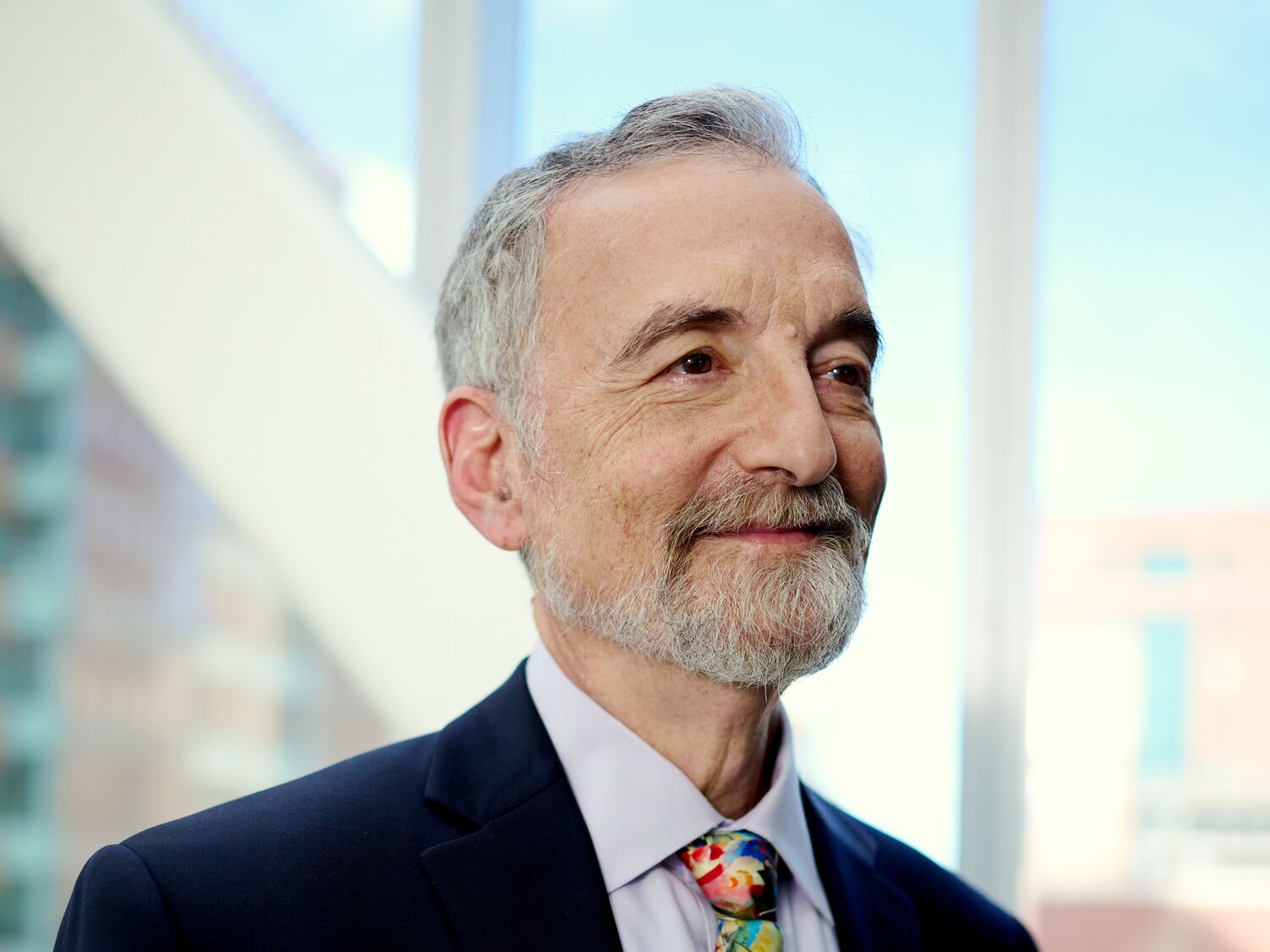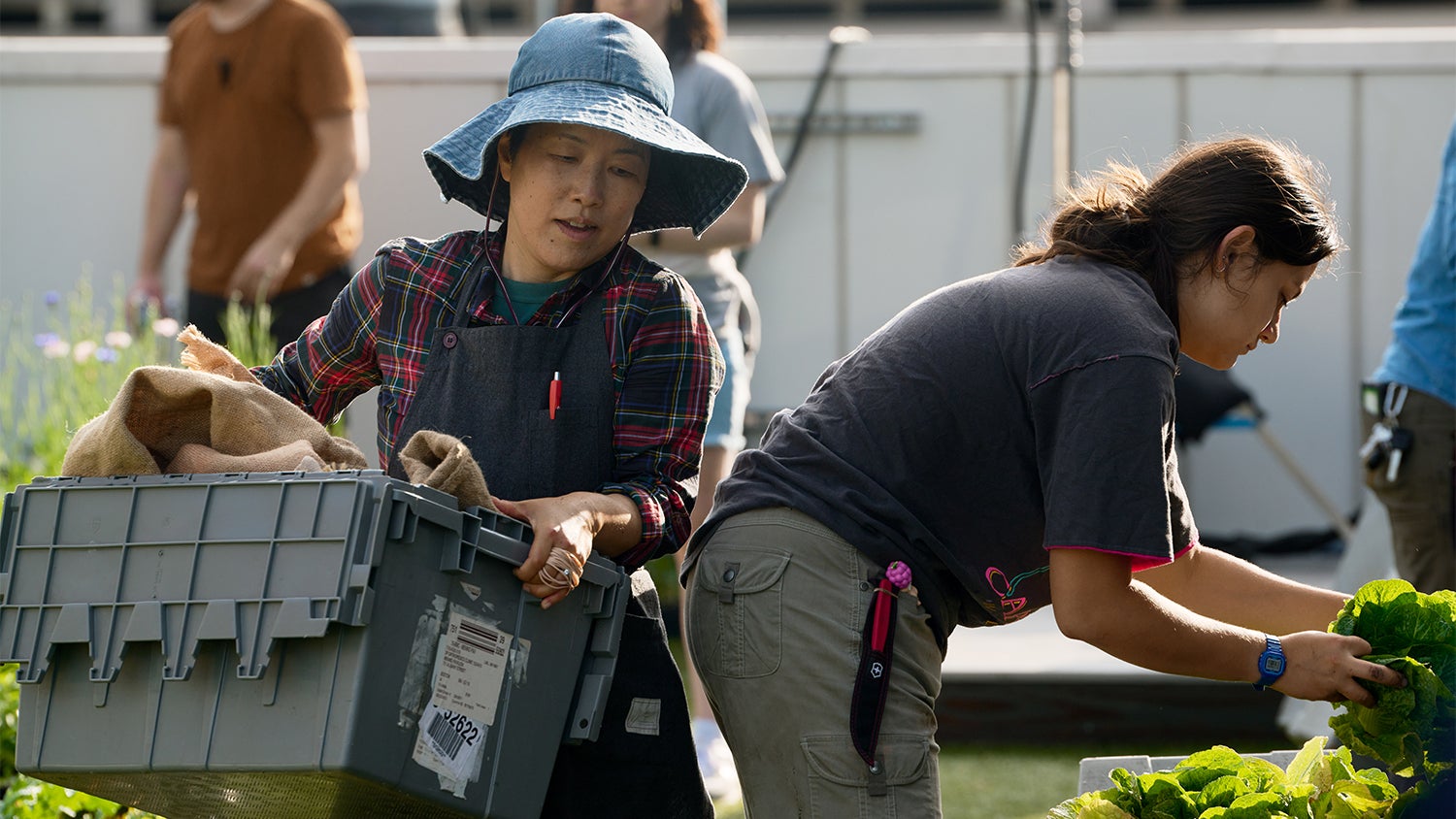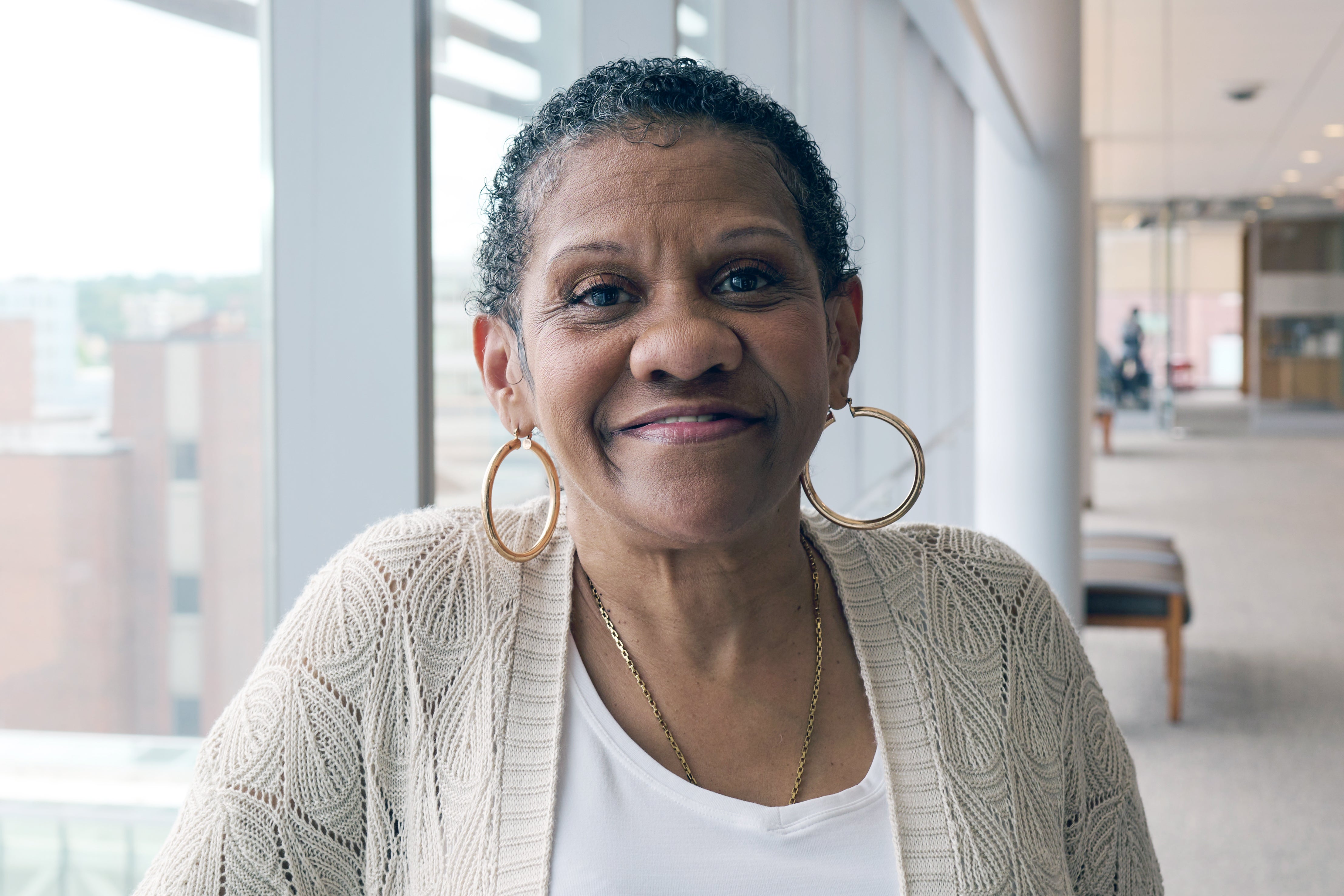
BMC is rewriting healthcare by making care accessible to everyone.
Rewriting Healthcare by Arminta Graham, BMC patient
When Arminta Graham was diagnosed with lymphoma in October 2022 at Boston Medical Center (BMC), she started treatment right away. But after three rounds of chemotherapy failed to stop her cancer from progressing, Fabio Petrocca, MD, director of the CAR T-cell Therapy Program at BMC, came to her with another option. “He said he wanted to talk with me about being the first patient at BMC to get CAR T-cell therapy,” she says. “I had never heard of it and was scared, so at first I said no.”
Read on to learn how Armita eventually changed her mind and how this innovative cell therapy led her to be declared free of cancer in April 2023. Arminta’s story is just one of the many ways BMC is rewriting healthcare by making state-of-the-art treatments available to all patients.
How did you feel being the first patient at BMC to receive CAR T-cell therapy?
At first, I was scared. Dr. Petrocca told me about this new treatment, and he gave me all the information on it. He had my whole family come to the hospital, and we had a conference. And I was saying, “No, no, no” the whole time because I was scared. One, because I had never heard of it, and two, because of the side effects. Like they said it could cause memory loss, and that scared me. But they had already given me a couple of rounds of chemotherapy, and it wasn’t really taking like they wanted it to. It wasn’t doing anything really. My family was like, “Maybe you should give it a try, since the chemotherapy isn’t working.” So, I just said, “OK, I’ll try the CAR T.” And then Dr. Petrocca and the team at BMC really prepared me for everything I was going to go through — the good and the bad. Though it turned out I didn’t really have any bad side effects.
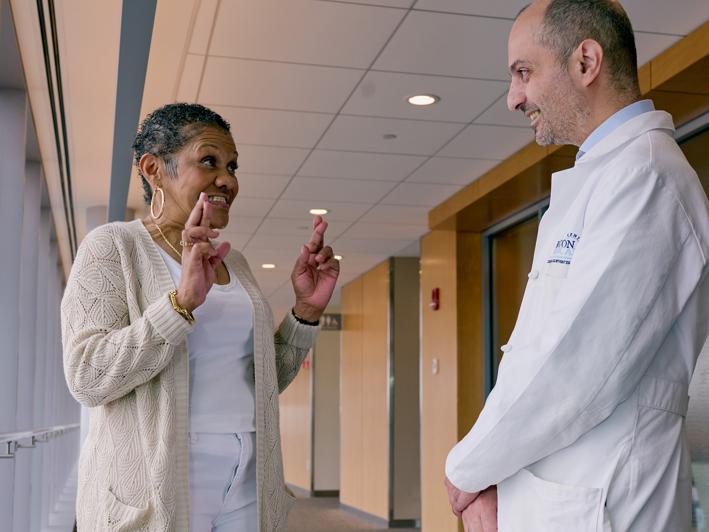
What was the experience like?
In CAR T-cell therapy, some of your T-cells are taken out of your blood and changed in the lab so they can recognize and destroy cancer cells. Then they are placed back into your body to help fight cancer.
I came into BMC on December 26 to remove the cells, which took about three hours. And then they had to send them away for about three weeks. I came back in on January 9 and was admitted into the hospital, and they put the cells back into my body. That took like 15 minutes. But then I had to be monitored for 10 days, because you have to be careful and watch for fever and forgetting stuff, like not remembering people. Every day, I had to write a sentence because they wanted to watch my penmanship and to see if I remembered the sentence, which I did.
On January 19, I was sent home. But when you have CAR T, you need to have family support for at least 30 days to make sure you don’t have any serious side effects. My family were my caregivers. They had to stay with me around the clock, 24 hours a day. I have six sisters and one brother, so they each made a schedule and did shifts. It was crazy, but it worked out. I felt great. I never had a fever. I never had any sickness. I never had any problems. I just had to come back to BMC to see Dr. Petrocca three times a week, to check my blood levels and make sure everything was going all right.
What’s been unique about your experience at BMC?
The whole experience really just blew my mind. I’d never been in the hospital before besides to have my children, so when they told me I had cancer, my family got scared and thought maybe I should go to another hospital. And I said, let’s just see what’s going to happen for us. Let’s ride it out for a minute. And I’m glad I did. I’m glad I didn’t change hospitals, because I probably would have never known about CAR T. And they really treated me so wonderfully here. I went through so many stages — like one minute I was walking, the next minute I wasn’t walking — and they were just so good about everything.
I used to think it was weird when people would say, “I love my doctor.” I used to be like, “Why do you love your doctor? That’s crazy.” Now, I’m saying it, “I love my doctor.” You know, you go through traumatic stuff with someone like that and you get a real bond.
How would you describe BMC to other people?
I think a lot of people might be nervous to come to BMC because of the location or because they see people who aren’t like them. But BMC really, truly saved my life. You can trust in the doctors, the nurses, and everyone. They were all really good to me. I wouldn’t change the way I went about treatment for anything in the world.
But BMC really, truly saved my life. You can trust in the doctors, the nurses, and everyone.
What is BMC to you?
BMC is a place where I get my care. And I wouldn’t change it or go anywhere else. All the doctors and everybody here know me. So this is where I’m going to stay.
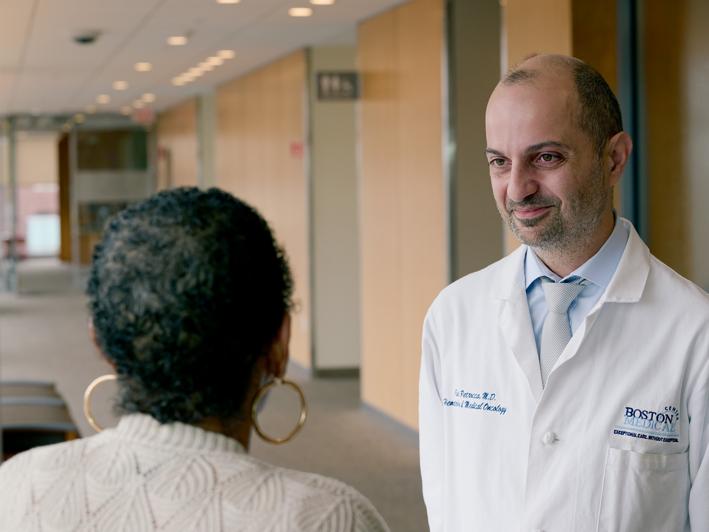
How do you think BMC is rewriting healthcare?
I think they are rewriting healthcare by making care accessible to everyone. That means no one is getting treated differently because of who they are or the color [of] their skin or where they live. They all treated me like a person and not like a chart that they read. They really got to know me.
no one is getting treated differently because of who they are or the color [of] their skin or where they live
I was very surprised that CAR T was available here. You would think it would only be at Dana Farber or Mass General — you know, places like that. But for it to be right here in our community, it was a wonderful thing because it really works. I can’t believe I don’t have cancer today.

